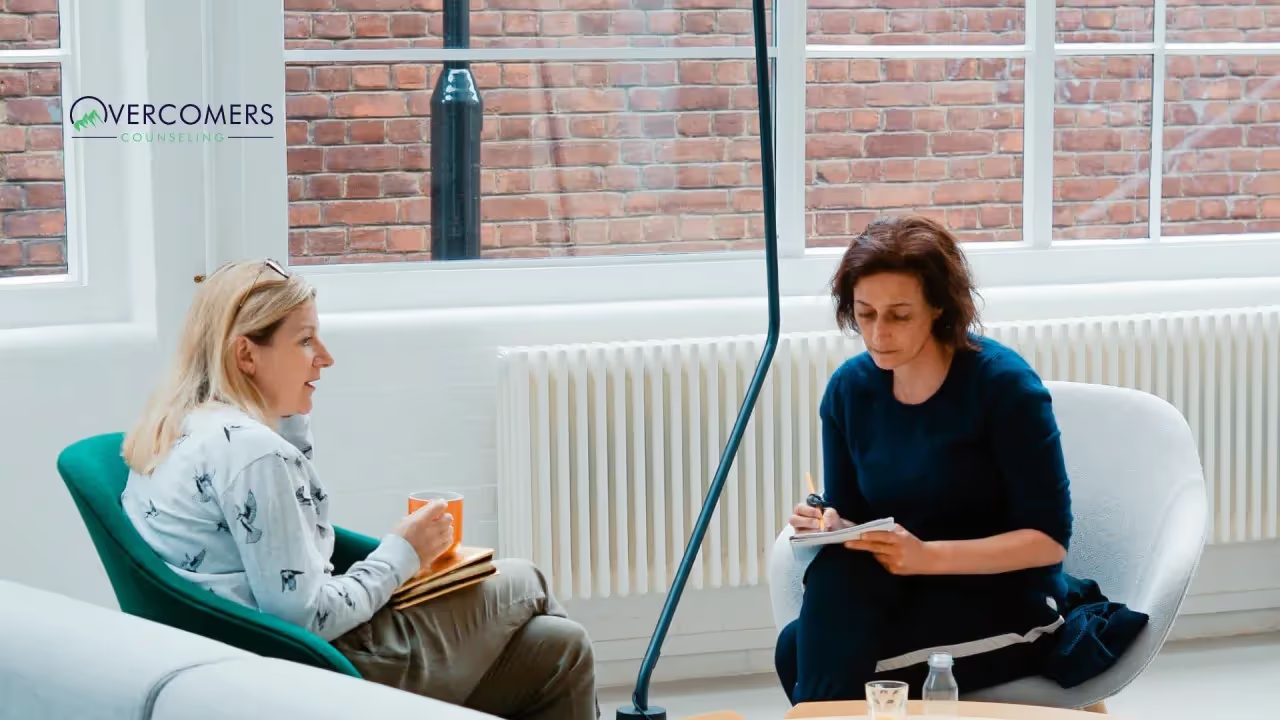Post-separation counseling is a therapeutic journey embarked upon following the dissolution of a significant relationship. It serves as a ray of hope amid...

Post-separation counseling is a therapeutic journey embarked upon following the dissolution of a significant relationship.
It serves as a ray of hope amid the frequently stormy emotional landscape that follows separations, providing a safe haven to unpack emotions and steer through the ensuing changes.
This form of counseling plays a pivotal role in mitigating emotional stress, fostering resilience, and equipping individuals with effective coping mechanisms.
It's akin to a compass, guiding individuals through the uncharted territories of life post-separation, promoting healing, self-discovery, and ultimately, charting a course to a healthier emotional future.
Post-separation, it's not uncommon to experience an onslaught of emotions ranging from relief to profound grief.
However, if you find yourself grappling with persistent feelings of depression, unrelenting anxiety, or difficulty in carrying out your day-to-day activities, it may be a sign that you need professional assistance.
Other indicators could include persistent insomnia, loss of appetite, feelings of worthlessness, or intrusive thoughts about the separation.
It's essential to understand that these reactions are not a sign of weakness; they are natural responses to a significant life change and seeking help is a courageous act of self-care.
As for the 'ideal' time to seek post-separation counseling, it varies from person to person. Some individuals might benefit from counseling immediately after the separation, as it can provide a supportive space to process the initial shock and grief.
Others might find it more helpful once the dust has settled a bit, allowing them to utilize therapy to navigate their new normal.
There's no one-size-fits-all timeline - the key is to listen to yourself and seek help when you feel ready and when you feel it would be most beneficial.
Post-separation counseling sessions typically begin with an initial assessment where the therapist gets to know you, your history, and the specific circumstances of your separation.
This stage is crucial as it helps the therapist understand your current emotional state, establish your goals for therapy, and develop a tailored treatment plan.
Exploration
Once the initial assessment is complete, the exploration phase begins. Here, you'll delve deeper into your thoughts, feelings, and reactions associated with the separation.
You might explore topics like your relationship history, your coping mechanisms, and the impact of the separation on different aspects of your life.
The goal here is not to dwell in the past but to gain insights that can help you navigate your present and future.
Understanding
The understanding phase involves making sense of the emotions and patterns identified during the exploration phase. You'll work with your therapist to recognize any unhealthy patterns or behaviors and understand their roots.
This phase often involves cognitive-behavioral techniques, where you learn to identify and challenge negative thought patterns that may be contributing to your distress.
Healing
The final stage is healing, where you'll start to apply the insights and skills gained in therapy to your everyday life. This could involve learning new coping strategies, setting boundaries, or working on self-care routines.
The focus here is on building resilience and fostering a healthier relationship with yourself and others.
Throughout this process, therapists may employ a variety of evidence-based techniques such as mindfulness exercises, emotion-focused therapy, stress management techniques, and more.
The specific methods used will depend on your unique needs and the therapist's expertise.

The type of counseling that works best for you can depend on your personal circumstances, comfort level, and specific needs. Here are three common types of post-separation counseling:
Individual Therapy
Individual therapy involves one-on-one sessions with a therapist. This type of therapy allows for a highly personalized approach, as the therapist can tailor the sessions to address your specific concerns and goals.
It provides a safe, confidential space for you to explore your feelings, identify patterns, and develop coping strategies.
Pros: Personalized attention, privacy, and the ability to progress at your own pace.
Cons: May not provide opportunities to learn from others' experiences or receive peer support.
Group Therapy
Group therapy involves one or more therapists working with several individuals at the same time. These groups often consist of individuals who are going through similar experiences, such as separation or divorce.
Sharing your experiences with others who are in the same boat can provide mutual support, reduce feelings of isolation, and provide different perspectives.
Pros: Peer support, learning from others' experiences, and often more affordable than individual therapy.
Cons: Less personalized attention and potential discomfort discussing personal issues in a group setting.
Family Therapy
Family therapy might be appropriate if the separation is affecting other family members, such as children.
This type of therapy can help families communicate better, resolve conflicts, and understand each other's experiences and emotions during this challenging time.
Pros: Can improve overall family dynamics and help children cope with the separation.
Cons: Requires willingness from all family members, and conflicts may be harder to manage in a group setting.
Each of these approaches has its strengths and limitations. It's essential to consider your comfort level, financial means, and specific needs when choosing the type of counseling that's right for you.
Choosing the right post-separation counselor can be a critical factor in your healing journey. Start by considering their qualifications and experience.
Look for a licensed professional who has experience dealing with separation or divorce issues. Their therapeutic style is also important - some therapists are more solution-focused, while others might take a more exploratory approach.
It's crucial to choose someone whose style resonates with you. You should also consider practical factors like location, availability, and whether they accept your insurance.
Most importantly, trust your gut feeling during the initial consultation. You want to feel comfortable, respected, and heard by your counselor.
It's okay to try a few different counselors before you find the right fit. Your comfort and trust in your therapist can significantly impact your progress in therapy.
Yes, both children and adults with ADHD can experience emotional dysregulation. However, the manifestations may differ, with adults often having more complex processes and coping mechanisms.
While not listed as a core symptom in the Diagnostic and Statistical Manual, research suggests that emotional dysregulation is a common and impactful aspect of ADHD.
Women with high functioning ADHD may appear to manage their symptoms well but still struggle internally. They may have successful careers but struggle with time management, organization, and maintaining social relationships.
Inattentive type ADHD is characterized by difficulty paying attention, forgetfulness, and disorganization. Women with this type of ADHD may struggle with completing tasks, following instructions, and maintaining focus.
Untreated ADHD in women can lead to low self-esteem, mood swings, and difficulty focusing. It can also increase the risk of eating disorders, substance abuse, and other mental health issues.
No. We DO offer counseling (talk therapy) or medication management for individuals with ADHD or ADHD type symptoms. If you are looking for a formal evaluation involving extensive testing, you will need to seek a Psychologist.